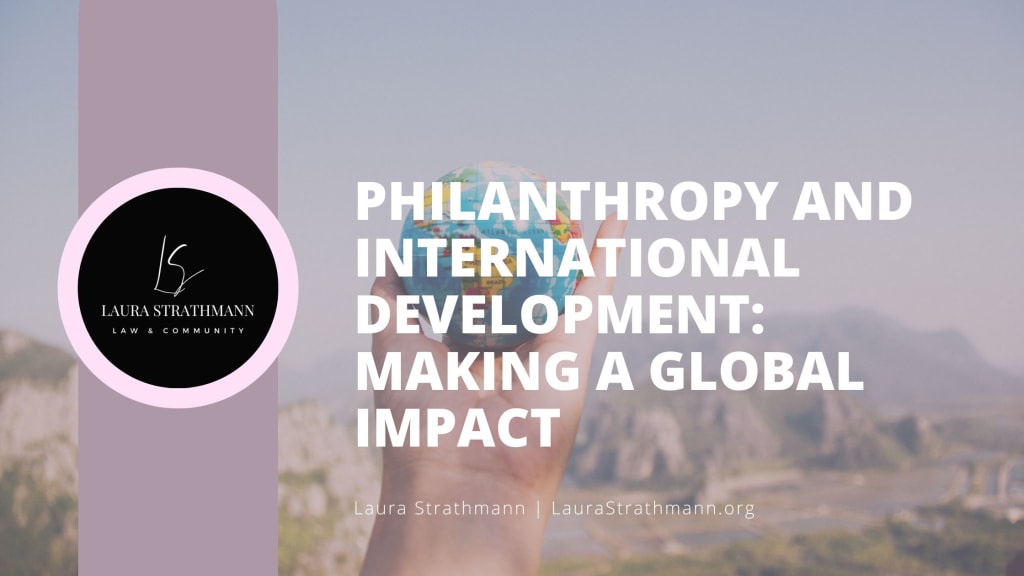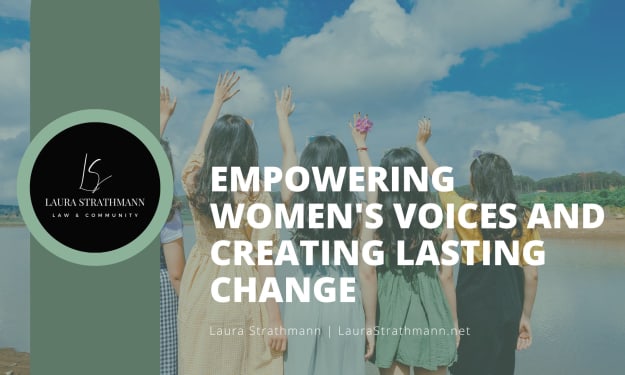Philanthropy and International Development: Making a Global Impact
How you can make a difference in this world.

Philanthropy, the act of giving to promote the welfare of others, plays a crucial role in shaping the landscape of international development. Global challenges like poverty, inequality, and environmental degradation persist, and philanthropic efforts have become indispensable in pursuing sustainable development goals.
The Power of Philanthropy
Philanthropy’s power lies in its ability to leverage financial and non-financial resources to address pressing global issues. Unlike governments or international organizations, philanthropists have the flexibility to take risks, experiment with innovative solutions, and respond swiftly to emerging crises. This agility and innovation are vital in tackling complex problems that often require unconventional approaches.
One notable example is the Bill and Melinda Gates Foundation. Founded by the Microsoft co-founder and his then-wife, this foundation has been instrumental in the fight against global diseases like malaria and polio. Their philanthropic efforts have contributed to groundbreaking research, vaccine development, and healthcare infrastructure improvements, saving millions of lives.
Challenges in Philanthropy and International Development
While philanthropy holds immense potential, it also faces several challenges when it comes to international development:
Accountability and Transparency: Philanthropic organizations often operate with minimal oversight, raising concerns about accountability and transparency. Donors, NGOs, and recipients must work together to ensure funds are used effectively and ethically.
Sustainability: Many philanthropic efforts focus on short-term solutions, which may not address the root causes of issues in the long run. Sustainable development requires a more comprehensive approach encompassing economic, social, and environmental factors.
Inequality: Philanthropy can inadvertently perpetuate inequality when it fails to address systemic issues. Looking into the root causes of poverty and inequality requires financial support and advocacy for policy changes and systemic reforms.
Promising Trends in Philanthropy for International Development
Despite these challenges, philanthropy is evolving to make a more significant impact on international development. Here are some encouraging trends:
Strategic Giving: Philanthropists are increasingly adopting a strategic approach, conducting rigorous research to identify high-impact opportunities and measuring outcomes. This data-driven approach ensures equal delivery of resources.
Collaboration: Philanthropic organizations are recognizing the importance of cooperation. Partnerships between governments, NGOs, and the private sector are becoming more common, allowing for more holistic and coordinated solutions.
Capacity Building: Philanthropy is moving beyond immediate aid and investing in capacity building within recipient countries. This includes funding education and training programs to empower local communities to address their challenges independently.
Impact Investing: Many philanthropists are exploring impact investing, which seeks to generate financial returns and social or environmental impact. This approach aligns financial resources with social goals, creating a sustainable funding source for development initiatives.
Case Study: The Rise of Impact Philanthropy
Impact philanthropy is a relatively new concept that seeks to maximize the positive impact of charitable giving. It emphasizes measurable outcomes and accountability. One notable example is the Open Society Foundations, founded by George Soros. This organization has led impact philanthropy, supporting initiatives promoting democracy, human rights, and social justice worldwide. By focusing on advocacy, policy change, and grassroots efforts, they have contributed to tangible improvements in many societies.
Philanthropy’s role in international development is crucial and evolving. It can drive meaningful change by addressing the world’s most pressing challenges. As individuals and communities, we can all contribute to this global effort through financial contributions, volunteering, or advocating for change. We can make a lasting global impact and work towards a more just and prosperous future.
About Laura Strathmann
Meet Laura Strathmann, a dedicated District Court Judge in El Paso, Texas, whose illustrious career concerns family law cases. She has devoted herself to helping families find resolutions and safeguarding the well-being of children within the legal system, firmly advocating for children's rights and justice.
About the Creator
Laura Strathmann
Based out of El Paso, Texas, Laura Strathmann is a highly accomplished legal professional with years of experience as a judge and attorney. In her free time, she invests in her community, volunteering and serving on various boards.
Enjoyed the story? Support the Creator.
Subscribe for free to receive all their stories in your feed. You could also pledge your support or give them a one-off tip, letting them know you appreciate their work.






Comments
There are no comments for this story
Be the first to respond and start the conversation.